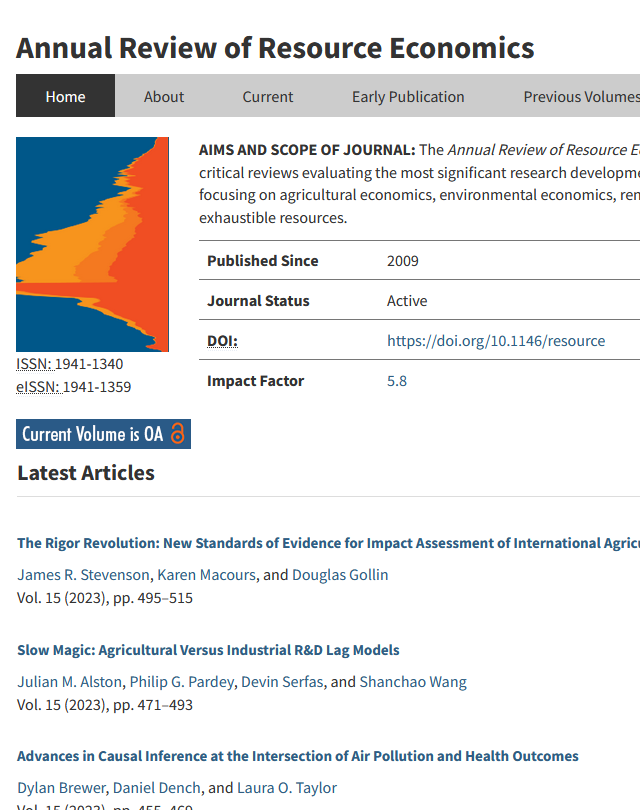Economics of Crop Residue Management
IF 8.4
2区 经济学
Q1 AGRICULTURAL ECONOMICS & POLICY
Annual Review of Resource Economics
Pub Date : 2023-10-05
DOI:10.1146/annurev-resource-101422-090019
引用次数: 1
Abstract
More than five billion metric tons of agricultural residues are produced annually worldwide. Despite having multiple uses and significant potential to augment crop and livestock production, a large share of crop residues is burned, especially in Asian countries. This unsustainable practice causes tremendous air pollution and health hazards while restricting soil nutrient recycling. In this review, we examine the economic rationale for unsustainable residue management. The sustainability of residue utilization is determined by several economic factors, such as local demand for and quantity of residue production, development and dissemination of technologies to absorb excess residue, and market and policy instruments to internalize the social costs of residue burning. The intervention strategy to ensure sustainable residue management depends on public awareness of the private and societal costs of open residue burning.作物残留物管理经济学
全世界每年产生的农业残留物超过50亿吨。尽管具有多种用途和增加作物和畜牧业生产的巨大潜力,但仍有很大一部分作物残留物被焚烧,尤其是在亚洲国家。这种不可持续的做法造成了巨大的空气污染和健康危害,同时限制了土壤养分的回收。在这篇综述中,我们研究了不可持续的残留物管理的经济理由。残留物利用的可持续性由几个经济因素决定,如当地对残留物生产的需求和数量、吸收过量残留物的技术的开发和传播,以及将残留物燃烧的社会成本内部化的市场和政策工具。确保可持续残留物管理的干预战略取决于公众对公开焚烧残留物的私人和社会成本的认识。
本文章由计算机程序翻译,如有差异,请以英文原文为准。
求助全文
约1分钟内获得全文
求助全文
来源期刊

Annual Review of Resource Economics
AGRICULTURAL ECONOMICS & POLICY-
CiteScore
9.40
自引率
0.00%
发文量
34
期刊介绍:
The Annual Review of Resource Economics provides authoritative critical reviews evaluating the most significant research developments in resource economics, focusing on agricultural economics, environmental economics, renewable resources, and exhaustible resources.
 求助内容:
求助内容: 应助结果提醒方式:
应助结果提醒方式:


